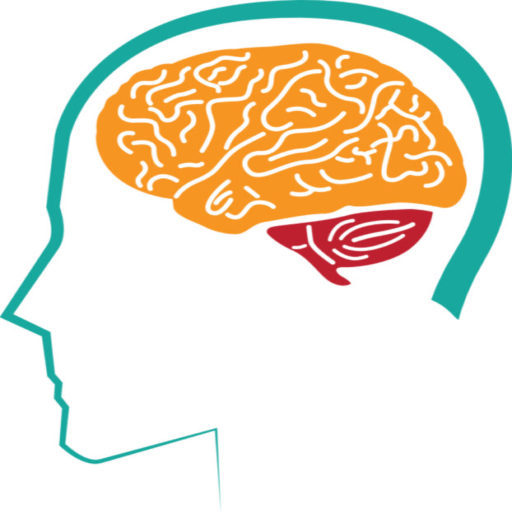Introduction
Mental illness affects millions of people worldwide, yet it remains shrouded in stigma and misunderstanding. This stigma not only perpetuates harmful stereotypes but also poses significant barriers to treatment and recovery. In this article, we will address common misconceptions and stereotypes surrounding mental illness, explore the impact of stigma on individuals and society, and provide guidance on how to be an ally and advocate for mental health awareness.
Common Misconceptions and Stereotypes
1. Mental Illness Is a Sign of Weakness
One of the most pervasive misconceptions is that mental illness reflects personal weakness or lack of character. In reality, mental illness is a complex interplay of genetic, biological, environmental, and psychological factors. It can affect anyone, regardless of their strength or resilience.
2. Mental Illness Is Rare
Mental illness is far more common than many realize. According to the World Health Organization (WHO), approximately one in four people worldwide will experience a mental health issue at some point in their lives. It is not a rare or isolated phenomenon.
3. People with Mental Illness Are Violent
Media portrayals often link mental illness with violence, perpetuating a harmful stereotype. In reality, individuals with mental health conditions are more likely to be victims of violence than perpetrators. Most are non-violent and pose no threat to others.
4. Mental Illness Is Just “In Your Head”
Mental illnesses are not mere figments of imagination or a matter of willpower. They involve real changes in brain chemistry and functioning. Dismissing mental illness as something that can be overcome by positive thinking only exacerbates the stigma.
5. Medication Is the Only Solution
While medication can be a crucial part of treatment for some mental health conditions, it is not the sole solution. Therapies, lifestyle changes, and social support also play significant roles in recovery.
The Impact of Stigma
1. Delayed Treatment
Stigma often leads individuals to delay seeking help for their mental health issues. Fear of judgment or discrimination can prevent timely intervention, potentially worsening the condition and reducing the chances of successful treatment.
2. Isolation and Loneliness
Stigma can isolate individuals with mental illness, making them feel alone and disconnected from others. This social isolation can exacerbate symptoms and hinder recovery.
3. Self-Stigma
Individuals may internalize the negative stereotypes associated with mental illness, leading to self-stigma. This self-criticism can erode self-esteem and hinder treatment progress.
4. Employment and Educational Discrimination
Stigmatizing attitudes in the workplace and educational institutions can lead to discrimination against individuals with mental health conditions. This discrimination may include denial of opportunities, exclusion, or unjust treatment.
How to Be an Ally and Advocate
1. Educate Yourself
The first step in being an ally and advocate for mental health is to educate yourself. Learn about different mental health conditions, their symptoms, and available treatments. Recognize and challenge your own misconceptions.
2. Listen Without Judgment
Create a safe and non-judgmental space for individuals to share their experiences. Listening attentively without offering unsolicited advice or judgment can be immensely supportive.
3. Speak Up Against Stigma
Challenge and confront stigmatizing language or behavior when you encounter it. Be an advocate for respectful and inclusive language surrounding mental health.
4. Show Empathy and Support
Express empathy and support for those living with mental illness. Let them know that you care about their well-being and are there to offer assistance if needed.
5. Promote Mental Health Awareness
Participate in mental health awareness campaigns and events. Share accurate information and resources to help educate others and reduce stigma in your community.
6. Encourage Seeking Help
Encourage individuals who may be struggling with their mental health to seek professional help. Offer to assist them in finding appropriate resources and treatment options.
7. Normalize Conversations About Mental Health
Openly discuss mental health in your social circles. Normalizing conversations about mental health can make it easier for individuals to seek help and share their experiences.
Conclusion
Breaking the stigma surrounding mental illness is essential for the well-being of individuals and society as a whole. Common misconceptions and stereotypes can perpetuate discrimination, isolation, and delayed treatment. As allies and advocates, we can play a crucial role in challenging these misconceptions, providing support, and promoting mental health awareness.
Understanding that mental illness is not a sign of weakness, that it is not rare, and that it is not synonymous with violence is a fundamental step in reducing stigma. Recognizing the impact of stigma on delayed treatment, isolation, and discrimination highlights the urgency of our efforts.
By educating ourselves, listening without judgment, speaking up against stigma, showing empathy and support, and promoting mental health awareness, we can contribute to a more inclusive and compassionate society—one where individuals living with mental illness can seek help without fear, find understanding, and embark on their journey to recovery with dignity and hope.
References
- World Health Organization. (2021). Mental disorders. https://www.who.int/news-room/fact-sheets/detail/mental-disorders
- Thornicroft, G., Rose, D., Kassam, A., & Sartorius, N. (2007). Stigma: ignorance, prejudice or discrimination? The British Journal of Psychiatry, 190(3), 192-193. https://doi.org/10.1192/bjp.bp.106.025791
- Corrigan, P. W., Druss, B. G., & Perlick, D. A. (2014). The Impact of Mental Illness Stigma on Seeking and Participating in Mental Health Care. Psychological Science in the Public Interest, 15(2), 37-70. https://doi.org/10.1177/1529100614531398

